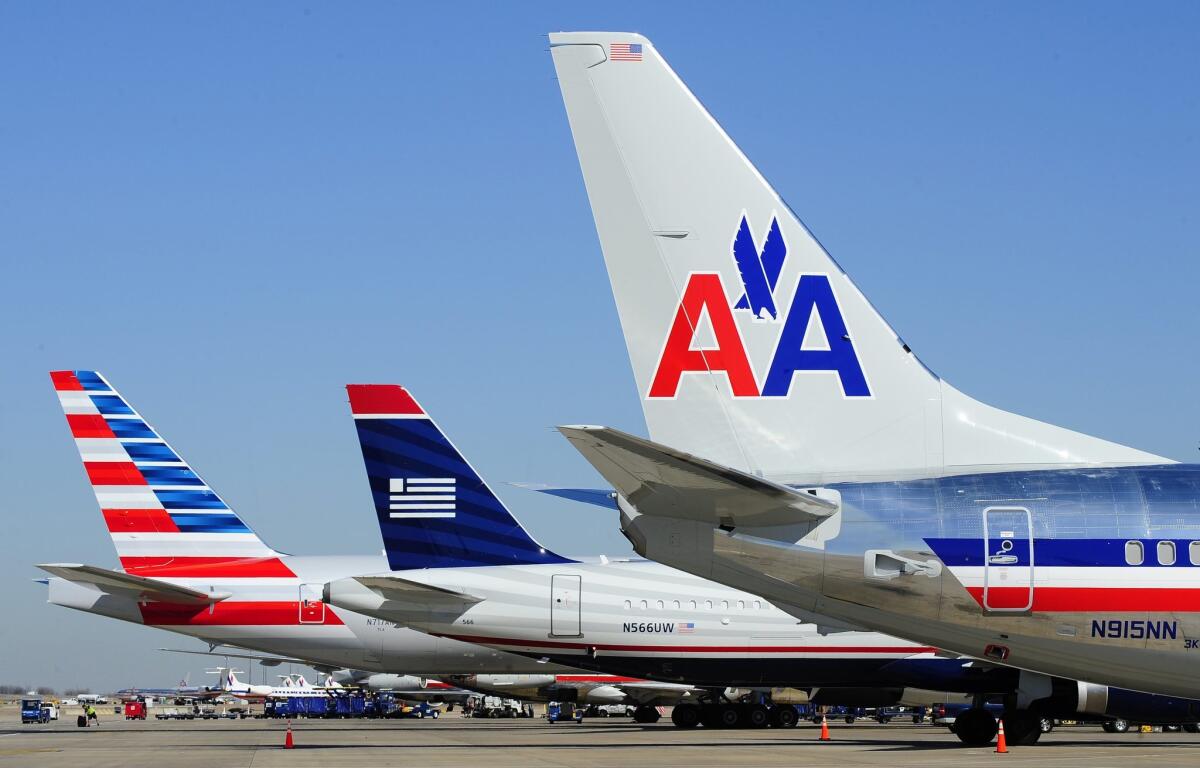Airfares remain stable despite decline in airline competition

- Share via
After the marriage of American Airlines and U.S. Airways last year -- the latest of several airline mergers -- more than 80% of the nation’s domestic air travel was funneled through just four carriers.
Antitrust advocates warned that the decline in competition would surely lead to higher fares.
But so far, that hasn’t happened.
In fact, the number of fare hikes imposed by airlines actually declined over the past three years.
In 2011, major U.S. carriers adopted nine fare hikes, followed by seven in 2012 and three in 2013, according to the travel website Farecompare.com.
So far this year, airlines have rolled out four fare hikes, three of them limited either to last-minute flights or trips to and from Canada.
Last month Delta Air Lines initiated a fare hike of up to $10 for a round-trip ticket. It was matched by American and United airlines, but all three carriers rolled back the hike when Southwest Airlines refused to match it.
Data from the U.S. Bureau of Transportation Statistics show that fares have remained relatively stable, rising less than 2% since 2011.
But fares don’t tell the whole story, says Diana Moss, vice president of the American Antitrust Institute.
She said airline mergers have allowed airlines to reduce service to small markets and raise passenger charges, such as checked bag fees. Airlines can also raise prices by offering fewer seats at the cheapest fares, she said.
In short, Moss said it’s too early to tell how reduced competition will affect fares.
“You would need a far longer time to get an accurate assessment,” she said. “You can’t compare one year to another or even three years to get a trend.”
Rick Seaney, founder of Farecompare.com, agrees that air travelers have yet to see much effect from the reduced competition, partly because Southwest Airlines has refused to match the hikes initiated by other carriers.
“When Southwest doesn’t participate, its hard to do a hike,” he said.
To read more about travel, tourism and the airline industry, follow me on Twitter at @hugomartin.
More to Read
Inside the business of entertainment
The Wide Shot brings you news, analysis and insights on everything from streaming wars to production — and what it all means for the future.
You may occasionally receive promotional content from the Los Angeles Times.











